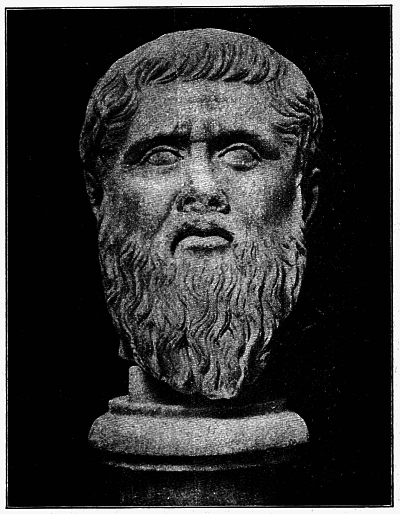 Certain critics of great books education fear that the books will replace the Book. They understand that not everyone who loves wisdom falls into vanity, but know that some of us do. They are right to worry, because certain authors are so good, so true, and so beautiful that they appear sufficient. Plato is one of those writers.
Certain critics of great books education fear that the books will replace the Book. They understand that not everyone who loves wisdom falls into vanity, but know that some of us do. They are right to worry, because certain authors are so good, so true, and so beautiful that they appear sufficient. Plato is one of those writers.
Plato is almost enough.
We have every word Plato ever wrote; a sure sign of the regard every culture, from pagan to Muslim, had for creator of written philosophy. Nobody burned Plato, because reading Plato is the clearest introduction to the dialectic, the Way of the Logos. There have always been disciples to protect the texts that taught them the best of earthly practices and some glimpses of heavenly truths.
Three things must be kept in mind when reading Plato. First, he is writing in dialogue form. He believes certain things, but these beliefs are less important to him than the process of reaching those beliefs. He wrote in a way that would provoke argument. Don’t be afraid to be bored . . . and then ask why Plato is going on and on. Ask and you find an answer.
This is because Plato wrote with great care. He was interested in numbers and grew up on the measured poetry of Homer. The greatest difficulty in reading Plato is knowing when to stop examining a page, a paragraph, a sentence, a word. The first word of Republic says Socrates is “going down” and the rest of the book contains a series of upward and downward motions.
Plato does not speak in his own dialogues. Socrates is the main character in most of the dialogues, certainly in Republic, but that does not mean Socrates is always speaking for Plato. The historic Socrates, like Jesus, wrote nothing, and like Jesus died he for his virtues. Unlike Jesus, Socrates was not the perfect son of God. Be willing to argue with Socrates or question the persuasiveness of his arguments. Notice his best students do so at the start of Republic’s Book II.
Finally, many Christians, from Justin Martyr through Augustine, to moderns like C.S. Lewis and J.R.R. Tolkien, have found useful philosophy in Plato. His works contain ideas that are not only compatible with Christianity, but which can be used to understand the Faith. He anticipates many Jewish and Christian ideas.
Plato did not, however, see the Incarnation. In Book VII of the Republic, Plato pictures humankind trapped in a Cave. He imagines what would happen if one man escaped the trap of our captivity, but he never explains how this miracle occurs.
Christmas is the answer, but Plato only saw winter and never Christmas. Plato, like any man without Revelation, could not reason enough to see the history that would be made at Bethlehem when his beloved Logos came down and revealed Himself to us, full of grace and truth.
__________
An edited form of this piece appears in The Great Books Reader.











